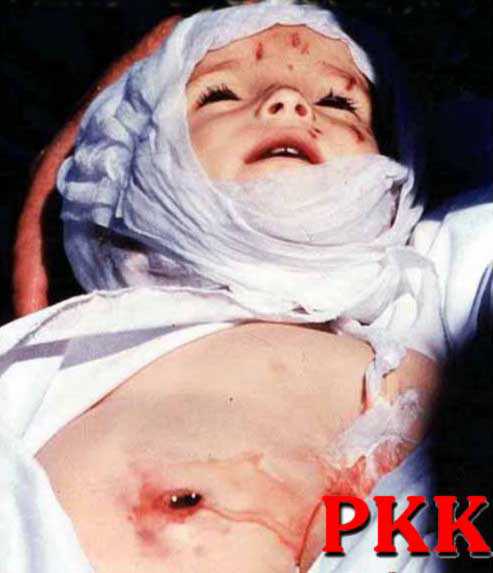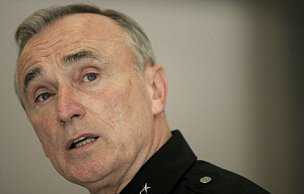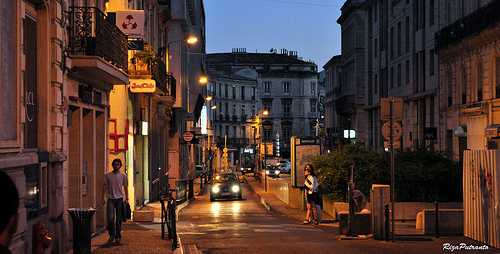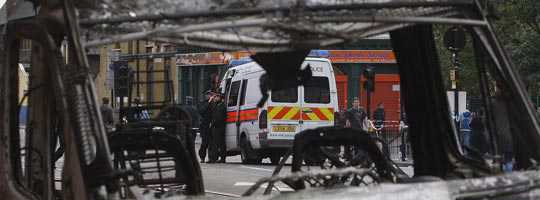
The naïveté in the West about the so-called “Kurdistan Workers’ Party” (PKK) decreased gradually during the last decade, but did not disappear. The reluctance of news agencies to even directly label it a terrorist organization is a remarkable example of incomplete evolution. The PKK maintains strong propaganda, and even pretends to represent “the Kurdish people”. The facts are in complete contradiction to their claim. Instead of improving the situation of the Kurds, the PKK’s misdeeds have always created new problems, or worsened pre-existing difficulties.
Tension strategy
The PKK was founded in 1978. During the five previous years, the situation in eastern Anatolia experienced some improvements, following the end of the military-backed regime (1971-1973). The development of universities anda revival of cultural activities were notable trends. The main difficulty was far-left terrorism — whose perpetrators were frequently close associates of the PKK — and the terrorist reaction on the part of the far right. Instead of taking note of these improvements and fighting against the terrorist violence, the PKK chose an extreme form of terrorism as the main, not to say the single, solution by which to achieve its goalsfrom the very beginning. Far from caring for the Kurds, the PKK, which at that time claimed a Maoist ideology, had the deepest contempt for their overwhelming majority.
Not unlike the terrorist campaign of the Armenian organization Hunchak and Armenian Revolutionary Federation-Dashnak against the loyal Armenians and dissidents, from 1890 to 1914, the PKK attempted to exterminate all notable Kurdish individuals and political organizations which could challenge its pretentions to hegemony: the conservatives, like Mehmet Celâl Bucak (assassinated in 1979), the progressives (resulting in the decimation of the Kurdistan Socialist Party), those who advocated primarily for cultural rights, the supporters of administrative autonomy, and even the violent separatist groups which refused to merge with the PKK [Çağaptay 2007]. From 1978 to 1980 alone, the PKK assassinated 354 people and wounded 366; all were Kurdish [Mango 2005, p. 34].
From 1980 to 1983, the military regime stopped the kind of civil war which risked to disintegrating Turkey — the methods used at that time, against both far left and far right terrorists, are a completely different issue, and the purpose of this paper is surely not to pretend that every action was fully justified; but the security goal was [İtil 1984; Mango, pp. 18-20]. If the use of Kurdish dialects was subjected to more than questionable restrictions in 1982, southeastern Anatolia received very significant help from the Southeastern Anatolia Project (Güneydoğu Anadolu Projesi, or GAP). The GAP provided electricity and running water to villages, which had primitive conditions of material life until that point, and developed irrigation. Whatever counter-terrorist methods employed during the military regime, there was no kind of “persecution” targeting the Kurds as Kurds: the Kurdish Turgut Özal was Minister of Economic Affairs from 1980 to 1982. As it is well known, Turgut Özal became Prime Minister at the end of the military regime (1983) and eventually President of the Turkish Republic (1989).
Such a senseless strategy becomes more understandable when considering that the PKK was materially dependent on the USSR, its Bulgarian satellite State, and its Syrian ally [Mango 2005, pp. 34-35]. For its sponsors, the PKK was a tool against Turkey and NATO, nothing more, nothing less — a tool among others, for the Turkish far-left terrorist groups, or, in another field, the Palestinian terrorists [Sterling 1981, pp. 228-244].
Blind and mass violence
Instead of taking note of the economic improvement and to take advantage of the presence of a Kurd at the head of the Turkish government, the PKK launched its first great offensive in 1984. The violence of its actions increased in 1987, when civil targets became a priority. From 1987 to 2002, 5,335 civilians were butchered, including 96 teachers only because they were teaching in the Turkish language; the PKK completely demolished 114 schools and six hospitals, heavily damaging another 127 and eight of them respectively. Michael Rubin pertinently compares this strategy to that of the Khmers Rouge’s [Rubin 2008]. Such extreme violence provoked departures of PKK members and leaders. The mass destruction and the massacres of civilians do not prevent the PKK from alleging — falsely — that the Turkish administrations “neglect” the development of southeastern Anatolia. Actually, the main obstacle to economic development in this region was — or perhaps still is — the PKK itself. The PKK profited from the underdevelopment, hence its absence of interest in contributing to the prosperity of eastern Anatolia.
As early as 1984, a local official of the PKK in Sweden left the group, and was assassinated; as a result, Sweden was one of the first Western countries to forbid PKK activities on its soil (it should be noted that A. Öcalan himself accused his ex-wife and ex-associate to have organized the assassination of Olof Palme, the Swedish Prime minister, in 1986). In 1988, Hüseyin Yıldırım, spokesman of the PKK in Europe, broke spectacularly with the PKK, saying that it was a scandal to massacre women and children. He was sufficiently lucky to escape to A. Öcalan’s killers[Mango 2005, p. 43].
The PKK’s second major series of attacks happened in 1992, i.e. when Turgut Özal was president, and one year after the official recognition of the Kurdish ethnicity, recognition which included the end of the strictest restrictions on the use of the Kurdish dialects. Several Kurdish cultural associations were created in Turkey in the beginning of the 1990s. The PKK decided to use mostly terrorism, not democracy. The PKK terrorist attacks also targeted German tourists after the closure of the PKK’s political wing by the German government in 1993, and Israeli diplomatic missions in 1999 as a result of Mossad’s assistance in the arrest of Mr. Öcalan, the leader of the PKK.
Since the end of the 1990s, in the context of the stabilization of Turkish political and economic life, the Ecevit and AKP governments widely expanded the outlets for the expression of Kurdish cultural activities. The single response of the PKK to the laws passed from 2001-2004 was a new wave of attacks. Its single response to the “Kurdish opening” of 2009 was a cease-fire which was actually never implemented.
The PKK’s propaganda pretends that only police and military are targeted. To kill policemen and soldiers in ambush is by no means excusable — this is terrorism — but the PKK never did limit its targets to security forces. Several examples were provided already. A recent and striking one is the assassination of an 18-year-old Kurd, Serap Eser, in 2009. In 2006-2007, the PKK burned many shops owned by peaceful Turkish traders, in France, Germany, Switzerland, Finland, and other countries. Such actions have no motivation but pure racism — and perhaps also the hope to worsen the relations between ethnic Turks and ethnic Kurds. In 2009, eleven Kurds were sentenced by the Paris tribunal, from 18 months to five years in jail, for arson and the fundraising of terrorist activities. Some others were sentenced in Germany [Libération Bordeaux 2009; State Department Report 2009]. Similarly, Çayan Tekiner was sentenced by the French justice system to two years in prison for attempted arson (by Molotov cocktail) against Turkey’s Permanent Representation at the Council of Europe in Strasbourg. Such decisions are fully backed by the jurisprudence of the European Court of Human Rights, which confirmed, on January 27, 2011, the decision of the German justice system (first instance, appeal, Constitutional Court) to sentence a pro-PKK agitator, who had launched a petition of “support” to the “democratic fight of the PKK” in 2001.
The current KCK court case (151 people indicted for supporting the PKK, physical threats, and other crimes) and the abduction of the son of Fehtullah Mehmetoğlu, the AKP mayor of Hazro (south-eastern Anatolia),illustrated the continuation of physical intimidation by the PKK and its supporters against any Kurd who would challenge their criminal activities and designs [Zaman 2010-2011].
Gangsters’ methods and alliance with the Armenian nationalists
The PKK used violence against Kurds for not only purely political, but also financial reasons. Far from obtaining systematic and spontaneous support from the Kurdish immigrants, the PKK had to use racketeering, as well as narcotics trafficking, to pay for its expensive terrorist activities [Çağaptay 2007; Haut 1998; Laçiner 2007; Minassian 2002, p. 194]. Such criminal activities began even while Greece, Southern Cyprus, and some others were providing material support to the PKK at the time. For instance, in 2000, Irfan Balsak was sentenced by the Paris tribunal to four years in jail and ten years in exile for various charges, including racketeering against Kurdish traders in the 1990s. More recently, the investigation by the French magistrate (juge d’instruction) Thierry Fragnoli dismantled a racketeering network in France. It should be stressed that this investigation was launched thanks to the complaints of Kurdish traders, who had been assaulted by PKK members. The verdict will be announced in November. Similarly, Mr. Fragnoli’s investigation demonstrated the PKK’s use of religious discourse to recruit and manipulate young Kurds, a finding which corroborates Turkish and British sources on the use of teenagers by the PKK, who are mostly abducted, often abused sexually, and tortured [Laçiner 2010].
Another striking example demonstrating that the PKK is not pursuing Kurdish interests, but its own interests, is the alliance with Armenian nationalist organizations, the ASALA in the 1980s, the Armenian Revolutionary Federation [Minassian 2002, pp. 74, 108-109, 116 and 194], the Hunchak, and some others, including in Armenia itself, up to today [Tanu and Abidelli 2007]. No group butchered more Kurds than the ARF-Dashnak and its volunteers for the Russian army during the World War I [McCarthy 2006, pp. 176-257; Reynolds 2011, pp. 156-159 and 194-197]. Even now, the ARF-Dashnak’s and the Hunchak’s territorial claims against Turkey imply a necessity for ethnic cleansing against the Kurds (as well the Turks) of Kars, Van, Bitlis, and other regions.In October 2009, the openly racist article of Laurent Leylekian, executive director of the Dashnak lobby in Brussels from 2001 to 2009, removed any doubt, if there was any, about what the ARF thinks of the Kurds: no better than the ethnic Turks. The article was removed, as was the website which published it, due to a court case, but the ARF never published the slightest criticism against the racist statement of its former leader.
Such an alliance, though absurd, is by no means an innovation. Hoybun, in a certain sense the ancestor of the PKK created in the second half of the 1920s, was closely associated with the ARF-Dashnak [Selim 1931 & 2005] — despite the Dashnak crimes being very fresh in the Kurdish memories at the time.
Conclusion
The PKK should be presented by any person who believes in democracy and human rights as a gang of criminals, existing by crime, rather than “guerillas” and the even less accurate “freedom fighters”. The PKK used Maoism as well as Islamism, and even racism, as a basis for extremely violent attacks. Its pretention to represent the Kurds is nothing but aninsult to its thousands of Kurdish victims. The pro-PKK should be more systematically considered accomplices of terrorism — following the example of Germany’s Federal Constitutional Court, which banned two pro-PKK newspapers in 1997.
———————————————————————————–
Works cited
Çağaptay 2007: SonerÇağaptay, “Can the PKK Renounce Violence?,” The Middle East Quarterly, XIV-1, Winter 2007,www.meforum.org/1060/can-the-pkk-renounce-violence
Haut 1998: www.drmcc.org/IMG/pdf/41b3a420533c6.pdf
İtil1984 :Turanİtil, “Terrorims in Turkey With Special Consideration of Armenian Terrorism, ” International Terrorism and the Drug Connection, Ankara: Ankara University Press, 1984, pp. 29-47.
Laçiner 2007: www.usak.org.tr/EN/makale.asp?id=702
Laçiner 2010: www.usak.org.tr/EN/makale.asp?id=1827
Libération Bordeaux 2009: www.libebordeaux.fr/libe/2009/01/onze-kurdes-con.html
McCarthy 2006: Justin McCarthy, Esat Arslan, Cemalettin Taşkıran and Ömer Turan, The Armenian Rebellion at Van, Salt Lake City: University of Utah Press, 2006.
Minassian 2002: Gaïdz Minassian, Guerre et terrorisme arméniens, (Paris: Presses universitaires de France), 2002.
Reynolds 2011 : Michael Reynolds, Shattering Empires. The Clash and Collapse of the Ottoman and Russian Empires, New York-Oxford: Oxford University Press, 2011.
State Department Report 2009:www.unhcr.org/refworld/country,,USDOS,,DEU,,4c63b64428,0.html
Rubin 2008:
Selim 1931 &2005 :YavuzSelim (ed.), TaşnakHoybun : Türkiye Cumhuriyet’ine Karşı Ermeni Kürt İttifakının İç Yüzü, (İstanbul : İleri Yayınları), 2005 (first edition, Ankara, 1931).
Sterling 1981: Claire Sterling, The Terror Network: The Secret War of International Terrorism, (New York: Holt, Rinehart & Winston), 1981.
Tanu and Abidelli 2007: /www.turkishweekly.net/news/52549/-armenia-and-karabakh-support-pkk-terrorism-.html
Zaman 2010-2011: www.todayszaman.com/news-224788-101-defense-in-kurdish-marks-first-day-of-kck-trial.htmlhttp://www.todayszaman.com/news-248158-pkk-releases-kidnapped-son-soon-after-mayor-quits-ak-party.html
(*) Maxime Gauin is a visiting researcher at USAK.
Turkish Weekly





